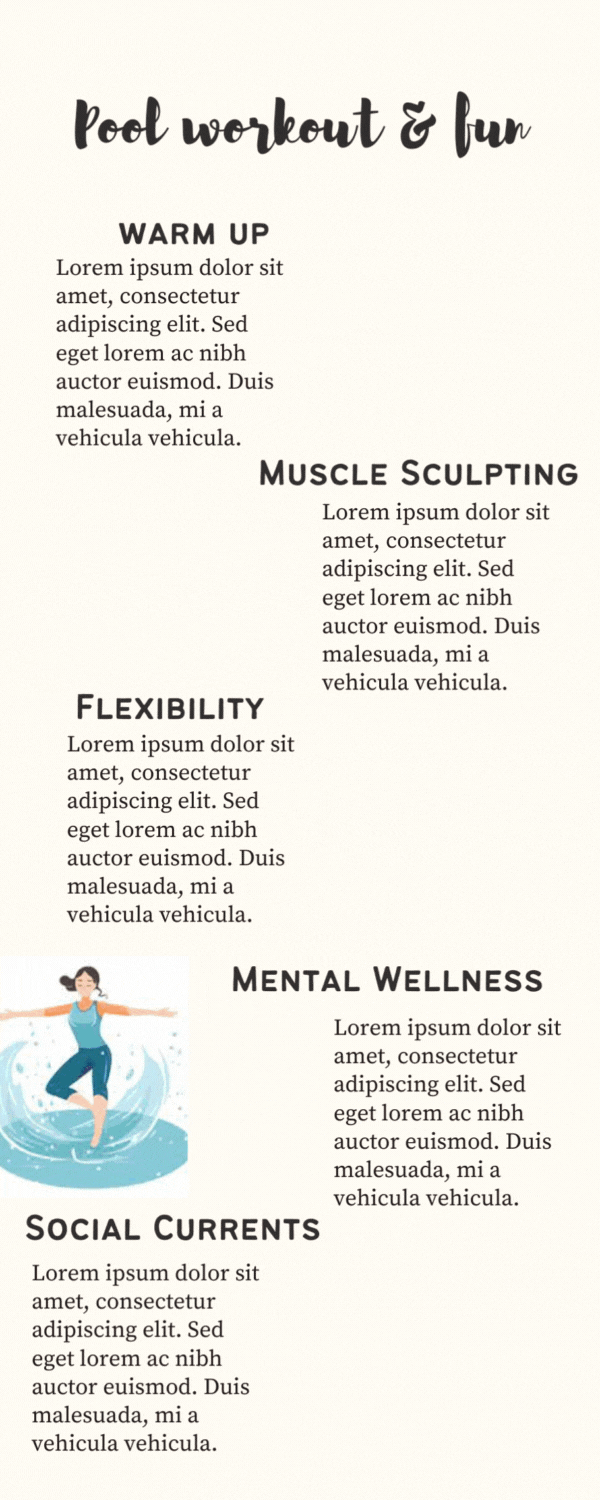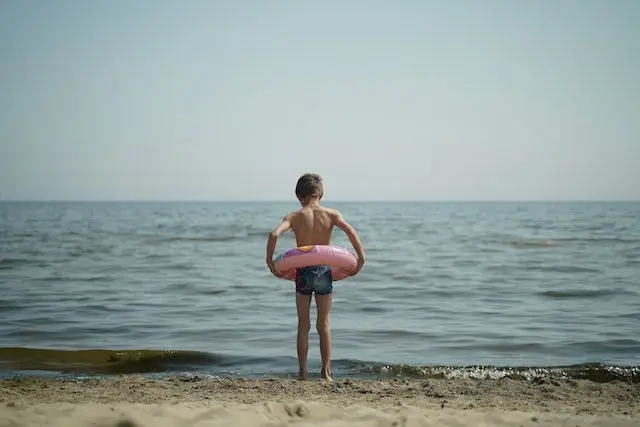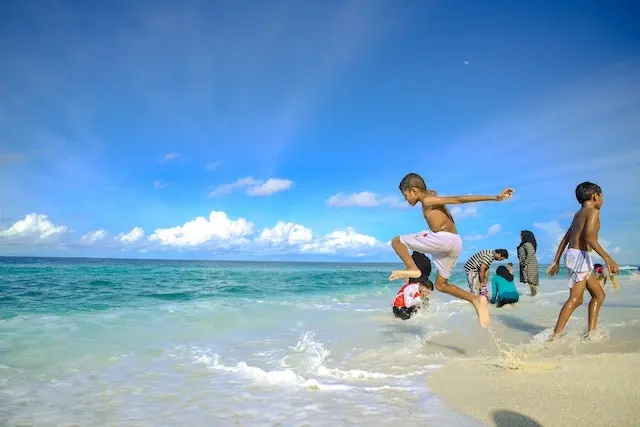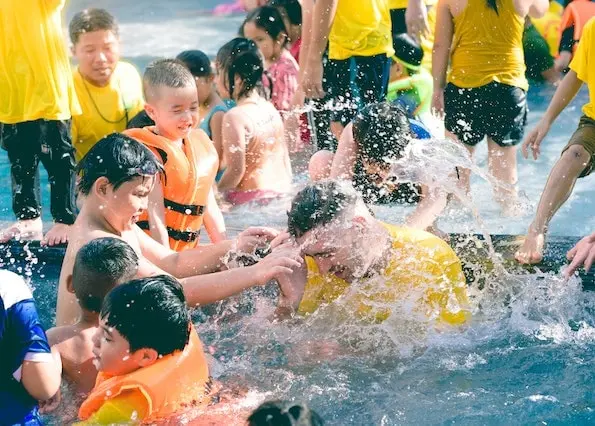Dive into Togetherness: 10 Swimming Activities for All Ages that Strengthen Family Bond
Embarking on a journey of familial aquatic adventures, this comprehensive guide promises to deepen connections and craft enduring memories. Let’s explore the multitude of ways families can enhance their bonds through swimming activities, catering to various age groups.
Table of Contents
Why is Water Play Important for Family Bonding?
- Shared Joy and Connection: Water play, with its unique blend of buoyancy and movement, creates an environment where shared joy becomes the catalyst for deeper familial connections.
- Laughter and Shared Experiences: The laughter and shared experiences forge lasting bonds among family members, providing a foundation for strong relationships.
- Unplugged Family Time: In a world dominated by screens, water play offers an opportunity for unplugged family time, fostering genuine interactions.
What swimming activities are suitable for infants and toddlers?

- Parent-Infant Water Classes: These specialized classes introduce infants to the water and provide a platform for parents to actively participate, promoting a sense of security and trust.
- Tactile Stimulation: Through touch and movement, these classes offer tactile stimulation, contributing to sensory development in infants.
- Water Safety Introduction: Early exposure to water instils a level of comfort and lays the foundation for water safety awareness
How Can Preschoolers Learn to Swim While Having Fun?
- Water Games and Floatation Aids: Engaging preschoolers in water games like “Simon Says” makes learning fun and aids in the development of motor skills.
- Floatation Aids for Support: Floatation aids provide the necessary support, ensuring a safe and enjoyable learning experience.
- Introduction to Basic Swimming Techniques: Preschoolers can be introduced to basic swimming techniques through games, building their confidence in the water.

What water exercises suit school-age children?
- Water Volleyball or Basketball: Introducing water sports like volleyball or basketball in the pool adds an element of friendly competition and teamwork.
- Active Teenager Participation: It’s an excellent way for teenagers to participate actively with the family, promoting physical activity and bonding.
- Water Obstacle Courses: Creating water obstacle courses challenges teenagers physically and mentally, fostering teamwork and creativity.
How Can Teenagers Enjoy Swimming Activities with the Family?
- Aqua Aerobics or Yoga: Participating in water aerobics or yoga classes as a family promotes physical health and encourages bonding.
- Serene Environment: The serene environment of the pool enhances the overall well-being of adults, providing a unique space for relaxation and family connection.
- Nighttime Pool Relaxation: Nighttime swims or relaxation sessions under the stars create a tranquil atmosphere for adult family members to unwind.
What aquatic activities promote bonding among adults?
- Gentle Water Walks: Seniors can actively engage in swimming activities through gentle water walks, promoting joint health and providing a serene setting for family conversations.
- Low-Impact Exercise: This low-impact exercise is suitable for seniors, contributing to physical well-being and multigenerational bonds.
- Hydrotherapy Sessions: Incorporating hydrotherapy sessions catered to seniors’ needs promotes relaxation and therapeutic benefits, creating meaningful moments for the whole family.

Can Seniors Enjoy Water Activities for Family Bonding?
- Gentle Water Walks: Seniors can actively engage in water-based activities through gentle water walks, promoting joint health and providing a serene setting for family conversations.
- Low-Impact Exercise: This low-impact exercise is suitable for seniors, contributing to physical well-being and multigenerational bonds.
- Hydrotherapy Sessions: Incorporating hydrotherapy sessions catered to seniors’ needs promotes relaxation and therapeutic benefits, creating meaningful moments for the whole family.
How Can Families Incorporate Safety into Water Play?
- Water Safety Education: Ensuring the safety of all family members is paramount. Water safety education, including adult supervision for young members, is crucial for a secure water play experience.
- Use of Life Jackets: The use of life jackets or floatation devices when necessary enhances safety, especially for non-swimmers or young children.
- Emergency Preparedness: Families should be well-versed in emergency procedures and CPR, creating a safe environment for swimming activities.

Are there water games that enhance communication among family members?
- Floating Conversation Circle: Create a floating circle where family members share thoughts and experiences or engage in word games.
- Facilitating Open Communication: The relaxed setting facilitates open communication, providing a unique space for family members to connect on a deeper level.
- Collaborative Challenges: Engaging in collaborative water challenges fosters teamwork and communication skills among family members.
How can families continue water bonding beyond the pool and swimming activities?
- Beach Picnics and Waterfront Walks: Organize beach picnics or waterfront walks, extending the aquatic bonding experience beyond the pool.
- Opportunities for Relaxation: These activities provide opportunities for relaxation, exploration, and bonding outside the pool environment.
- Water-Based Family Vacations: Planning vacations around water destinations allows families to explore new places together while enjoying swimming activities.
Conclusion
As families navigate the waters of togetherness, these diverse and inclusive swimming activities offer something for every age group. Strengthening bonds, promoting health, and creating cherished memories, swimming activities ensure that family ties remain as strong as the currents that connect us in the water. Dive in and celebrate the joy of family bonding through the shared love of swimming.

Why is water safety education crucial for family members of all ages?
Water safety education is vital to ensuring a secure environment during water play, fostering an understanding of potential risks and safe practices.
It empowers family members to make informed decisions, promoting a culture of responsibility and awareness.
How can we make water safety education engaging for young children?
Incorporate fun and interactive games that teach basic water safety rules, making the learning process enjoyable for young children.
Utilize age-appropriate materials, such as animated videos or colourful illustrations, to communicate essential safety concepts effectively.




